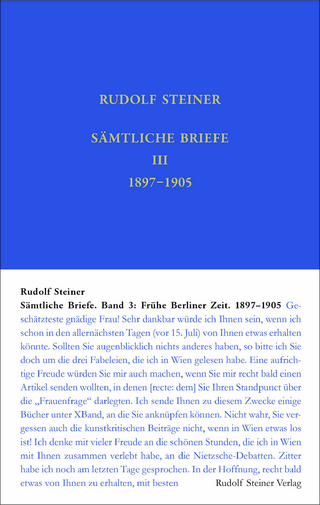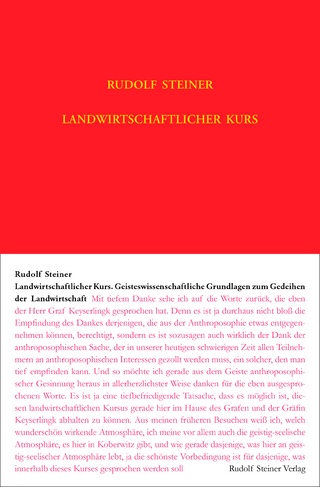
Imagination
Rudolf Steiner Press (Verlag)
978-1-85584-556-5 (ISBN)
This anthology offers a survey of the diverse aspects of Imagination and imaginative cognition. As the thematically re-ordered texts reveal, Rudolf Steiner’s spiritual philosophy – anthroposophy – is itself often pictorial and imaginative in nature. Many of its fundamental concepts, such as the evolution of the world and the human being, were formulated by Steiner in vivid, living pictures. However, whilst imaginative perception leads us to the threshold of the spiritual world, we can also fall prey there to illusions, visions and hallucinations.
This volume, expertly assembled by Edward de Boer, draws on the entirety of Rudolf Steiner’s collected works – from his earliest writings to passages from his many lectures. It is conceived as a stimulus to readers to practise, deepen and extend their own imaginative consciousness. Steiner’s commentary on `exemplary Imaginations’, in particular, encourages further study, contemplation and schooling of our own pictorial thinking.
Chapters include `Imagination as Supersensible Cognition’; `The Rosicrucian Path of Schooling’; `Exercises to Develop Imagination’; `Understanding Imagination Through Inspiration and Intuition’; `Illusions, Hallucinations and Visions’; `Imaginative Perception as the Threshold to the Etheric World’; `Goethe’s Worldview’ and `Exemplary Imaginations’ (including commentary on `The Fairy-tale of the Green Snake and the Beautiful Lily’, The Mystery Plays; The Great Initiates; the `Apocalyptic Seals’; The Chymical Wedding of Christian Rosenkreutz and the `Michael Imagination’).
Rudolf Steiner (1861-1925) called his spiritual philosophy “anthroposophy”, meaning “wisdom of the human being”. As a highly developed seer, he based his work on direct knowledge and perception of spiritual dimensions. He initiated a modern and universal “science of spirit”, accessible to anyone willing to exercise clear and unprejudiced thinking. From his spiritual investigations Steiner provided suggestions for the renewal of many activities, including education (both general and special), agriculture, medicine, economics, architecture, science, philosophy, religion and the arts. Today there are thousands of schools, clinics, farms and other organizations involved in practical work based on his principles. His many published works feature his research into the spiritual nature of the human being, the evolution of the world and humanity, and methods of personal development. Steiner wrote some 30 books and delivered over 6000 lectures across Europe. In 1924 he founded the General Anthroposophical Society, which today has branches throughout the world.
| Erscheinungsdatum | 13.05.2019 |
|---|---|
| Einführung | Edward de Boer |
| Übersetzer | Matthew Barton |
| Verlagsort | East Sussex |
| Sprache | englisch |
| Maße | 135 x 215 mm |
| Themenwelt | Weitere Fachgebiete ► Anthroposophie |
| ISBN-10 | 1-85584-556-3 / 1855845563 |
| ISBN-13 | 978-1-85584-556-5 / 9781855845565 |
| Zustand | Neuware |
| Haben Sie eine Frage zum Produkt? |
aus dem Bereich


